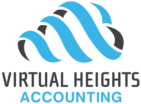For those of you with a Wise account, you may have realized the perks of receiving money internationally and spending locally. With the ease of doing business virtually comes the possibility of international banking becoming a day-to-day occurrence.
Canadian tax laws set out certain reporting requirements when it comes to international banking. Having a Wise account is convenient, but there are key things to be aware of so you don’t get stuck with tax penalties.
What is a Wise Account?
Wise recently changed its name from TransferWise. They set out to provide a better solution for international money transfers. In their words, they make money “borderless–with instant, super-cheap money transfers.” TranserWise is also known as Wise or WiseBusiness, depending on how you use their service.
Wise follows the regulations set out by each country in which they operate. Many of their cash deposit accounts are held in the UK, and as such, they follow the Financial Conduct Authority, the governing body that authorizes financial service activities in the UK.
The idea of saving money and making things easier when it comes to international banking transfers is appealing. However, there is some important information you need to know regarding foreign banking. Depending on your situation, you may be required to verify this foreign income. Failing to do so may result in penalties.
What is Foreign Income Verification?
Foreign income verification is reporting certain types of income held outside of Canada to the Canada Revenue Agency. The CRA does this to verify compliance with foreign reporting laws as well as better target international tax evasion and aggressive tax avoidance. This applies to specified foreign property over $100,000.
Common types of income that must be reported include:
- Funds or intangible property deposited or held outside Canada,
- Tangible property situated outside Canada,
- A share of capital stock of a non-resident corporation,
- Shares of corporations resident in Canada held outside Canada.
This is not an exhaustive list. If you have foreign investments and you’re not sure if you need to verify your foreign income, talk to your accountant. Property used or held exclusively in carrying on an active business is not included in the CRA’s definition of specified foreign property. If you held over $100,000 in your Wise account at any point during the year that was not used exclusively for your business, you need to file form T1135.
Do You Need to File Form T1135?
If your foreign asset adjusted cost base is below $100,000 CAD, you don’t need to file form T1135 Foreign Income Verification. The T1135 form is an information form. There is no tax calculated on this form. Even so, it’s important to understand whether you are required to file this form. There are penalties for not doing so. Failure to file the form (if required to do so) will result in money owing to the Canada Revenue Agency.
If you are panicking because you think you may have been required to file this form in the past and you didn’t, don’t worry. The CRA allows you to file the T1135 under their Voluntary Disclosure program. This program provides relief from penalties on forms that should have been filed but weren’t.
As with many Canadian tax laws, it’s not always easy to tell if this situation applies to you. If you’re wondering if you should have filed the T1135, or are required to going forward, get in touch. We can help you determine your foreign income verification filing status. If you need help with filing through the voluntary disclosure program, we can help with that too.





